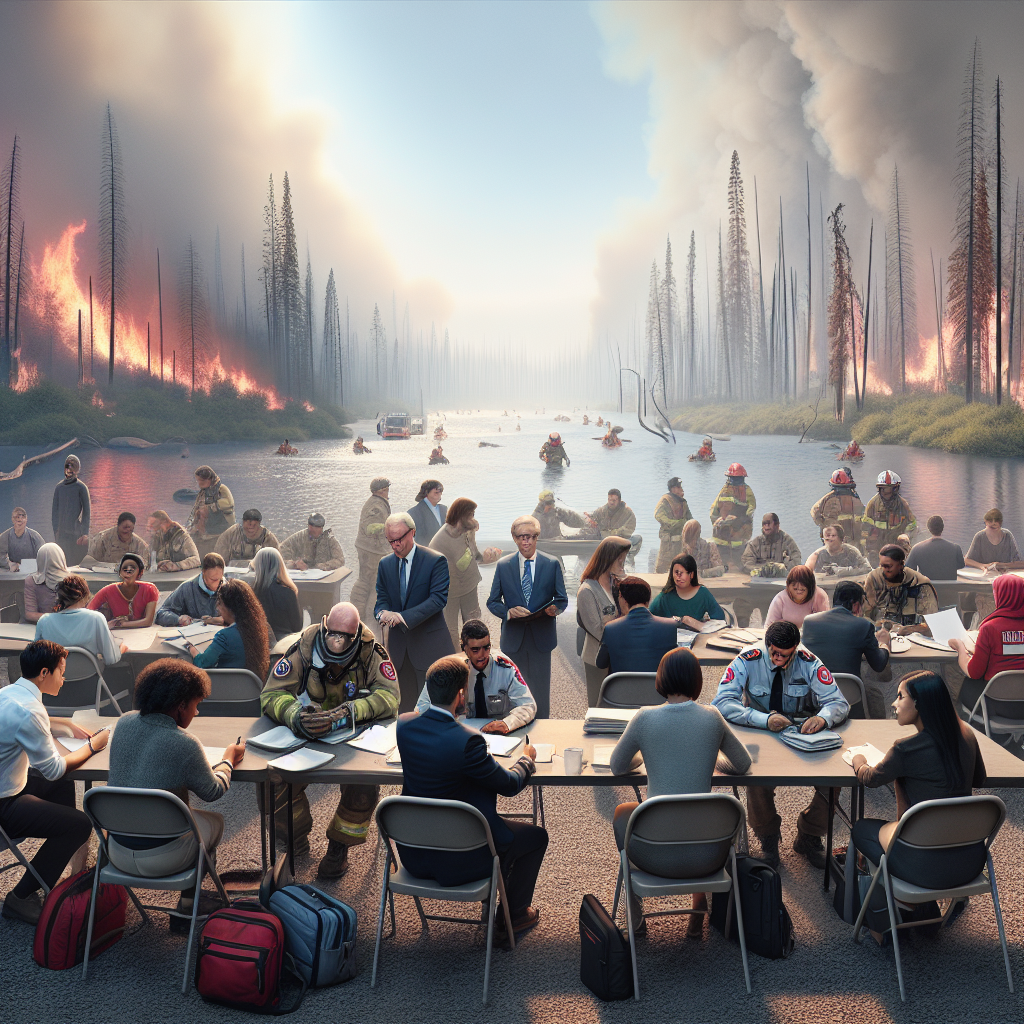Canada Unveils Support for 2025 Wildfire Victims

Title: Canada Responds to Wildfire Crisis with Comprehensive Relief Measures
As climate change accelerates, Canada is experiencing a concerning trend: its climate is warming more rapidly than the global average. This shift has led to an alarming increase in the frequency and intensity of extreme weather events, particularly wildfires, which pose significant risks to the health, safety, and economic stability of communities across the nation. In response to this growing crisis, the Government of Canada, under the leadership of Minister of Immigration, Refugees and Citizenship, the Honourable Lena Metlege Diab, has unveiled a series of special measures aimed at aiding those affected by the recent wildfires.
Key Relief Initiatives:
-
Free Document Replacements: Canadian citizens and permanent residents who have lost or damaged essential travel documents due to the wildfires can apply for free replacements. This includes passports, citizenship certificates, and permanent resident cards. Additionally, individuals who have already incurred replacement costs since April 1, 2025, are eligible for refunds.
-
Support for Temporary Residents: International students, temporary foreign workers, and other visitors directly impacted by the wildfires can replace their status documents at no cost. Furthermore, the government has waived the usual 90-day requirement for restoring temporary resident status, allowing affected individuals more flexibility in their recovery efforts.
- Aid for Emergency Personnel: To bolster firefighting efforts, Canada is also waiving application and biometric fees for foreign emergency services personnel who come to assist in battling the wildfires. This initiative recognizes the importance of international support in addressing the immediate crisis.
These measures will remain in effect until November 30, 2025, providing a crucial window for recovery and stability for those affected by the devastating wildfires.
Analysis: A Critical Step in Climate Adaptation
The Canadian government’s proactive stance in addressing the fallout from wildfires reflects a broader recognition of the urgent need to adapt to climate change. As extreme weather becomes the new normal, such initiatives not only provide immediate relief but also serve as a model for how governments can support their citizens in times of environmental crisis.
This comprehensive approach highlights the interconnectedness of immigration policy and disaster response, showcasing how vulnerable populations—like international students and temporary workers—are integral to the fabric of Canadian society. By ensuring their needs are met, Canada not only nurtures its diverse community but also fortifies its economic resilience.
Moreover, the waiving of fees for emergency personnel underscores a collaborative spirit, inviting global assistance in combating climate-related challenges. This is a crucial reminder that climate change does not recognize borders; therefore, a united effort is essential.
Looking Ahead: A Call for Sustainable Practices
While these measures are commendable, they also prompt a larger conversation about long-term strategies for climate resilience. Canada must not only focus on responding to disasters but also invest in preventive measures, such as sustainable land management, improved forest management practices, and enhanced community preparedness programs.
As citizens and policymakers navigate this new reality, the focus should be on creating a future where communities are better equipped to withstand the impacts of climate change. Engaging with Indigenous knowledge systems, which have long understood the land and its natural cycles, could provide invaluable insights into sustainable living and disaster preparedness.
In conclusion, the Canadian government’s response to the wildfire crisis is a significant step towards supporting affected individuals and communities. However, it serves as a crucial reminder that the fight against climate change requires both immediate action and long-term commitment to sustainable practices. As the nation grapples with the realities of a warming climate, proactive planning and community engagement will be key in building a resilient future.
Reference



